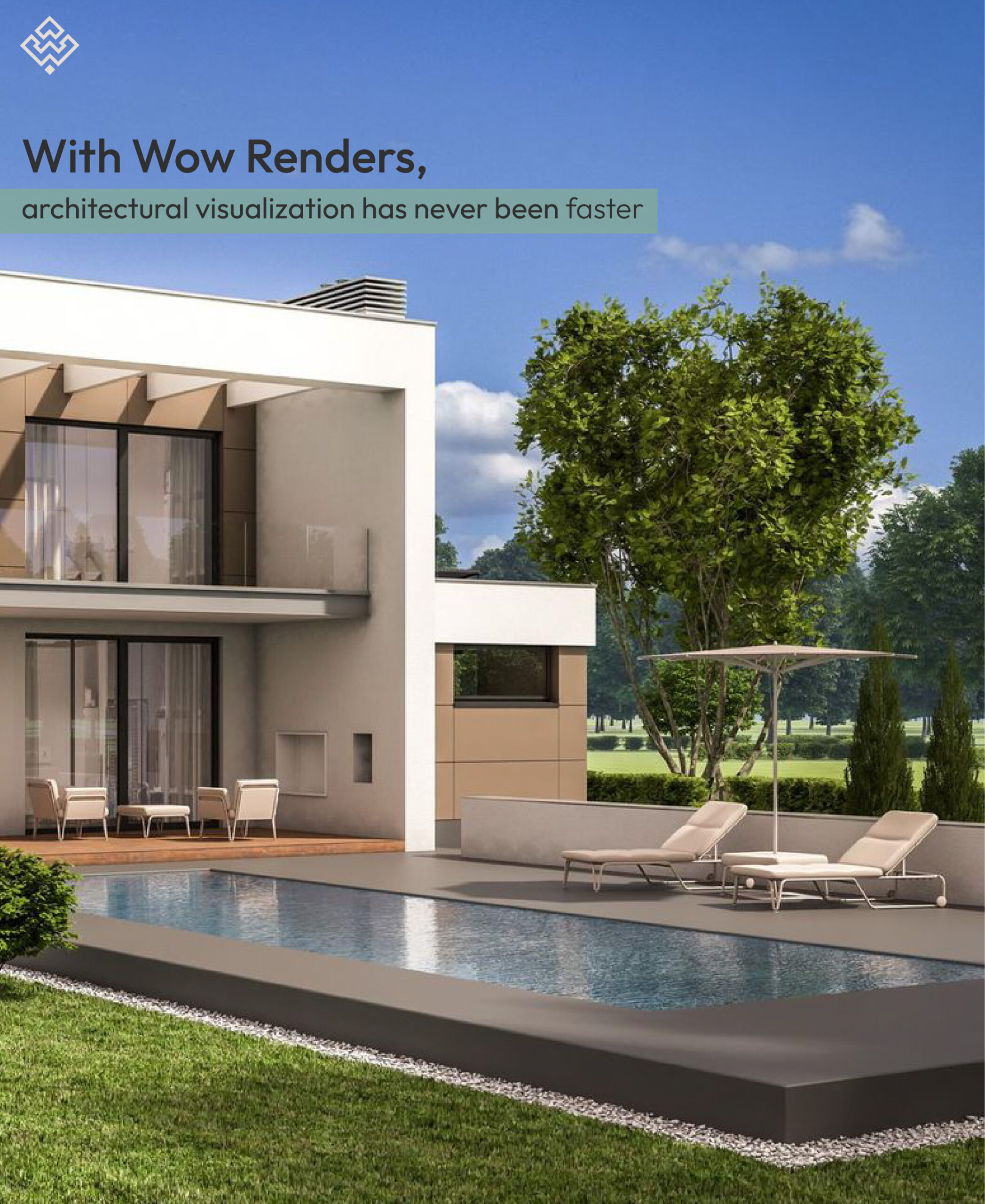
18 Sep The Future of architectural visualization: Innovations and possibilities
In the dynamic world of architectural visualization the future is an ever-evolving canvas where innovation knows no bounds. The industry is on the brink of a revolution poised to redefine the way we perceive and interact with architectural designs. At Wow Renders we’re excited to be at the forefront of this transformation and in this article we’ll delve into the future advancements and possibilities that are shaping architectural visualization.
Real-time rendering: A visual revolution
One of the most exciting developments in architectural visualization is real-time rendering. Traditionally rendering a complex 3D scene was a time-consuming process often taking hours or even days. Real-time rendering powered by cutting-edge graphics hardware and software has changed the game entirely.
With real-time rendering architects and designers can make instant changes to a scene and see the results in real-time. This not only speeds up the design process but also enables clients to participate actively in the creative journey. Imagine walking through a virtual representation of your future home making on-the-fly adjustments to lighting, materials and layout – it’s an immersive experience that blurs the line between the virtual and the real.
AI-assisted rendering: Enhancing creativity
Artificial intelligence (AI) has permeated every corner of the tech world and architectural visualization is no exception. AI-assisted rendering is a game-changer, using machine learning algorithms to predict and optimize rendering settings for the best possible results.
This means that designers can focus more on the creative aspects of their work while AI handles the technicalities. AI can generate highly detailed textures, improve the realism of lighting and even predict how materials will behave in different conditions. It’s like having an AI collaborator that enhances your creative vision.
Interactive 3D experiences: Immersive engagement
Interactivity is key to the future of architectural visualization. As technology advances clients and stakeholders no longer want to passively view designs; they want to experience them. Interactive 3D experiences allow users to explore spaces in detail providing a level of engagement that static images or 2D plans can’t match.
Imagine using virtual reality (VR) or augmented reality (AR) to step inside a building that exists only in the digital realm. You can change the layout, try out different materials and even feel the sense of scale. Interactive experiences foster a deeper connection between the viewer and the design making it easier for everyone involved to provide valuable feedback.
Wow Renders: Pioneering the future
At Wow Renders we’re not just keeping up with these innovations – we’re driving them forward. Our commitment to staying on the cutting edge of architectural visualization has led us to explore and implement these emerging technologies.
We’re harnessing the power of real-time rendering to offer our clients dynamic collaborative design experiences. Our AI-assisted rendering ensures that every project we undertake is optimized for realism and creativity. And when it comes to interactive 3D experiences we’re pushing the boundaries to create immersive environments that truly bring designs to life.
As the future of architectural visualization unfolds, Wow Renders is your partner in navigating this exciting landscape. Together we’ll continue to push the boundaries of what’s possible and create architectural visions that captivate, engage and inspire.




Sorry, the comment form is closed at this time.